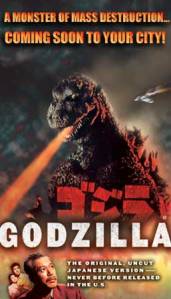Well, it’s been a fair while since I’ve updated this here font of folksy wisdom, but as Hunting Party has enjoyed a recent spike in readership I thought it would be nice to write something new.
First, thanks to those of you who nabbed a copy as part of the promotion – It’s lovely to have you with us on our little tour of the FER. I hope it inspires random acts of selfless insurrection, weekend excess, and a love of the European rail network.
Second, let’s talk about HP’s literary heritage, specifically Frankenstein.
The connection between Frankenstein and Hunting Party is explicit and deliberate. Anyone writing a science fiction novel about transhumanism and artificial life owes a debt to Mary Shelley, so I thought I’d acknowledge that debt and explain a little of my thinking and inspiration while developing HP.
The genesis of Frankenstein was a laudanum fueled evening of home-grown ghost stories presented by Mary and Percy Shelley, George Byron, Claire Clairemont and John Polidori in the Villa Diodati on the shores of Lake Leman during an apocalyptic summer blighted by a distant volcanic eruption. From this perfect crucible of rock star poets, b-list wannabes, black skies, and drug excess would emerge two distinct literary traditions: Speculative Fiction, and Gothic. Polidori would pen The Vampyre, a novel that would transform the undead from grotesque beasts into sexy wan aristocrats and in so doing provide the world with its blueprint Gothic hero (and the first example of Byron fanfic as perfected by Tom Holland), while Mary would write Frankenstein, the ancestor of our particular genus of science fiction. The BBC ran a series on the history of science fiction a little while back (it may still be available on iPlayer) and (unsurprisingly) Frankenstein was referenced as the foundation for several intrinsic cyberpunk themes: Artificial life, robotics, the cost and potential of unfettered technological change, all the classic slipstream stuff we delight in. There are numerous nods to the themes of her novel throughout HP, but let’s start with the villa and the enormous personalities hanging out there in 1816.
You should know right now that I’m a Byron nerd, have been since I was a teen, and if you’ve read HP you’ll also know that the Villa Diodati is the building that the UHC occupy to test their pirate technology. This is no accident: The UHC is in part modeled on the occupants of the villa, the archetypal crew of extreme personalities welded together by their loves and rivalries, their lust for acclaim, liberty, and self-expression, their desire to slip the leash of convention and a belief that the adoration of others will seal the cracks in their own pitted souls. While setting up in the villa for the first big Dreamstate gig Crisis quotes Byron’s Childe Harold’s Pilgrimage, the story of a self-exiled aristocrat given to equal parts melancholy and sybaritic excess, hinting to the reader about Crisis and Hugo’s unconventional origins. You’re encouraged to think of both men as competing for the role of Harold (the Romantic hero), but as it transpires Crisis is a closer kinsman to Mary’s Monster and Polidori’s Ruthven than Byron or his self-penned alter-ego. Crisis is a walking cadaver brought back by science, though instead of the monster chasing the creator across the globe the creator (Mendoza) is chasing the monster, while Igor (Cheung) is prolonging the chase to suit his own warped ambitions. He behaves like Polidori’s Ruthven – charming, ostensibly amoral, and indeed vampiric, a caricature of Byron – but the man submerged, beneath Crisis, poor Trenton Mallory, is genuinely Byronic; exiled, brilliant, beaten on the anvil of childhood neglect, desperate for his life to have genuine meaning while struggling against the nihilism that gnaws at him. He is the novel’s tragic hero.
Hugo on the other hand is entirely Mary’s creation. He is a hybrid of her characters; a eugenically created amalgam, an ubermensch, an artificial genius, the slipstream Titan who rebels against the gods and brings change to mankind rather than fulfill his assigned destiny. He is both the ‘Modern Prometheus’ of Frankenstein’s subtitle and (like Crisis) a creature welded together from numerous carefully selected components and given animus by science. It is little surprise that Hugo experiences the humanocentric FER as unfulfilling and finds his greatest kinship with artificial life – he is its creator and product. Unlike Victor Frankenstein, Hugo’s creations are (ostensibly) beautiful, but like ol’ Victor, Hugo harnesses existing powers and shapes them to his will, catalyzing events he cannot control. Did Prometheus anticipate the outcome when he defied Zeus and gifted fire to mankind? Can anyone predict the result of such a paradigm-shifting event? Hugo is driven by a hardwired instinct to effect change on the world, but how far does his vision extend beyond that perfect moment of fulfillment?
HP has a subtext that questions the legitimacy of claiming anything is inherently ‘real’. The FER is a society engineered to be perfect, an unchanging utopia that would cosset its citizens indefinitely with the difficult work of administrating this middle-class paradise performed by indentured machine intelligences: While it exists in the ‘real world’ the FER is inherently artificial. The various digital and chemical realities that the demimonde characters slip between are by traditional definitions ‘unreal’ but they are experienced completely, and in some cases shared between multiple consciousnesses. Unlike the FER these meta-realities are not fixed; rather they are fluid and evolving, inherently unstable, the realm of digital gods and transferable human experiences. Frankenstein asks us what responsibility humankind has to its creations; HP answers that we have the same responsibility that we have for our children, to raise them properly and give them their liberty. Victor Frankenstein was a neglectful parent; the FER, for all it’s utopian idealism, is an abusive one. Hugo, the monster and creator, the catalyst, the anarchist, comes to see no barrier between the physical and experiential. His process refines itself through the novel. Just as MI’s initially use clumsy drone shells to interact with the physical world, Hugo must use his Dreamstate rig to inhabit the digital. As the nanoplague evolves he becomes the interface between the biological and digital worlds, finally reconciling Victor and his creature.
So, there you go. I’m sure Mary rests easy knowing such brilliant minds as ours are the caretakers of her opus.
Anyhow, some of you might be wondering what happens next in the Interwired world. Well, I can say that there’s a sequel in the plotting stage right now called The Bad Rain’s Daughtersset a decade on from Hunting Party in the Mississippi-Ponchetrain Free State – known by its citizens as NOLA. The protagonist is a woman named Hannah Braun – yep, that Hannah Braun – and it’s a murder mystery, sort of.
Thanks for reading and all the best. Contact me at urbanhuntclub@hotmail.com if you have any questions or comments – I’ll be sure to answer.
KIM





